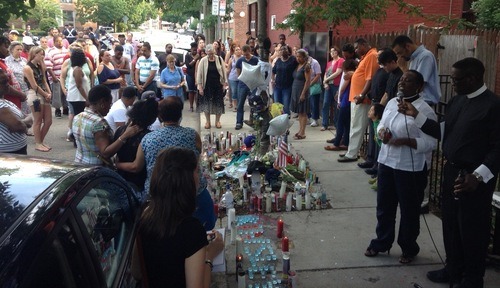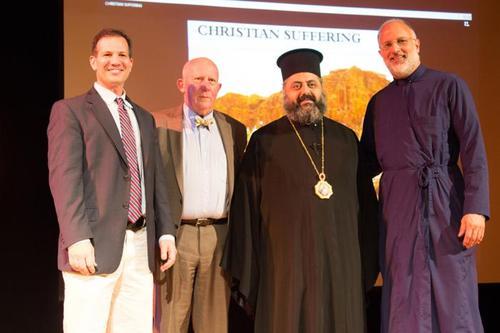This week, we hear from UniteBoston’s own Kelly Steinhaus, as she shares how the upcoming 10 Days of Prayer provides Boston’s diverse Christian community an opportunity to reconcile differences by remembering Christ as our Peace.
For He himself is our peace, who has made the two groups one and has destroyed the barrier, the dividing wall of hostility… His purpose was to create in himself one new humanity out of the two, thus making peace, and in one body to reconcile both of them to God through the cross, by which he put to death their hostility. (Ephesians 2:14-16)
What a radical concept Christian unity is! The fact that in Christ, we are one!
This heavenly reality certainly does not appear to be true when we look around the world. We all come from various backgrounds and cultures, life experiences, and we have our own denominational distinctions. Each person sees the world very differently, and because of this, we are inherently prone to disagree with and distance ourselves from those who are culturally, denominationally, and ethnically distinct from us.
Yes, it is easier to worship with people who look like us, act like us, and have the same theological beliefs as us. But as Christians we are called to go beyond this place of comfort to see and value Christ in our neighbor.
Paul acknowledges the difficulty of extending Christian fellowship by exhorting us to “earnestly endeavor to keep the unity of the Spirit through the bond of peace” (Ephesians 4:3). According to Karl Barth, the Greek word here implies a “full effort of the whole man, involving his will, sentiment, reason, strength, and total attitude”. “Earnestly endeavor” is not simply an outward action of embracing the other, but is first and foremost an inward examination of our hearts.
When you look at your brother or sister, do you see Jesus? What might be hindering your view?
From my experience, one of the chief hindrances to Christian unity is my need to be right. This places walls between me and my brothers and sisters, resulting in a self-righteous attitude. At the end of the day, only God knows those who are His, and so the “right” answer is Jesus’ work and righteousness, extended to all.
During 10 Days Boston, we have the opportunity to step outside our comfort zones to get to know our brothers and sisters from various denominations and backgrounds. As we do this, we learn to respect those that disagree with us. We learn to be confident in the fact that the fellowship of the saints goes beyond a uniform doctrine to involve a unity of Spirit (Eph 4:3) based on the inward spiritual rebirth of those who confess faith in Jesus as Lord. We also learn to value the breadth of Christian traditions rather than promoting a particular expression as having greater spiritual authority over another. Indeed, the deep, difficult work of Christian unity is to respect and honor those with whom we may have significant disagreements.
When we step back, we realize that the one and only thing that makes us one is our revelation of Jesus Christ. It is what Jesus did in his incarnation, sacrifice, and resurrection that has reconciled us to God and to one another, thus forming an inseverable and eternal peace. It’s as we all gaze at Christ’s sacrificial work on the cross that we are one.
Jesus, we confess our tendency to exclude rather than to include, to judge rather than to honor, and to assert our position rather than to love unconditionally. Lord, have mercy.
*Note: This devotional is a part of the 2015 daily devotional published by the national 10 Days team.


 When I think of Back Bay, two symbols come to mind that help me capture the character of this neighborhood: a pen and a wagon wheel. The pen represents learning and the pursuits that require a high level of literacy. Most of the activities that are evident in the Back Bay, from commerce to the various trades and occupations require learning and literacy as basic preconditions.
When I think of Back Bay, two symbols come to mind that help me capture the character of this neighborhood: a pen and a wagon wheel. The pen represents learning and the pursuits that require a high level of literacy. Most of the activities that are evident in the Back Bay, from commerce to the various trades and occupations require learning and literacy as basic preconditions. 

